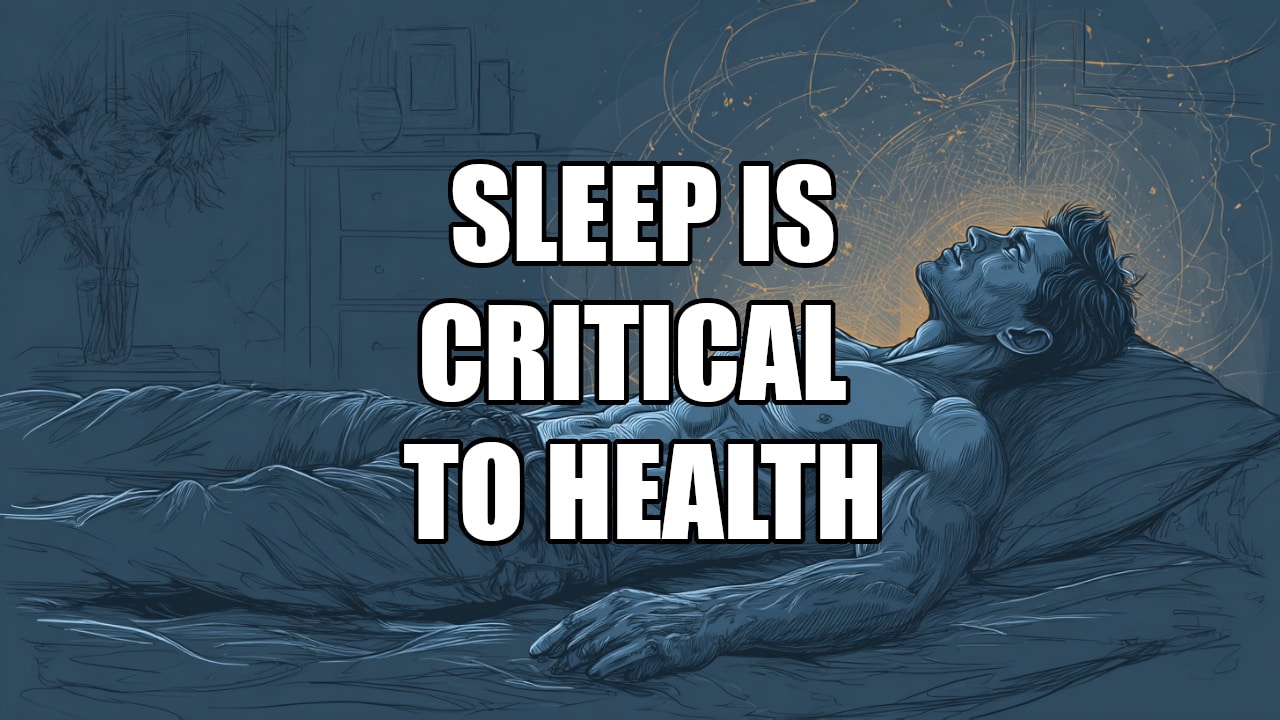Men over 40 know the grind. Work, family, and life pull you in every direction. But skimping on sleep hits harder now—slower gains at the gym, stubborn belly fat, and that nagging fatigue.
A new study changes how we see sleep. It’s not just rest. It’s your body’s prime time for growth hormone (GH) release, fueling repair and health.
Published in Cell, this research digs into the brain circuits behind it. No more guessing. Now we have a map.
The Science Behind Sleep and Growth Hormone
Growth hormone surges during deep sleep. Specifically, in non-REM stages early in the night. This isn’t old news—it’s refined with fresh data.
Researchers tracked neurons in mice. They found GHRH neurons ramp up in non-REM sleep, pushing GH out. Somatostatin neurons dial it back in REM.
Why care? GH rebuilds muscles after workouts. It strengthens bones and torches fat. For guys pushing 40-plus, this means staying strong without extra effort.
The study used advanced tools like optogenetics. They lit up brain cells to control them. Results showed clear links: deep sleep equals peak GH.
Why Deep Sleep Is Your Secret Weapon
Miss those deep sleep windows, and GH drops. That leads to weaker muscles and slower recovery. Fat piles on easier, too.
Blood sugar suffers without enough GH. Risks climb for diabetes and heart issues. The paper ties this to real health threats.
But there’s good news. Adults need 7-9 hours nightly. Hit that, and GH flows better. Teens might want 8-10, but for us, consistency counts.
Think of sleep stages like a cycle. Non-REM handles physical fixes. REM boosts brain power. Both matter, but deep non-REM is GH’s sweet spot.
The Brain’s Feedback Loop: A Game-Changer
Here’s the breakthrough. GH doesn’t just release—it loops back to the brain.
It hits the locus coeruleus (LC), your arousal center. This keeps you alert by day. Too little sleep? Low GH means draggy days.
Too much GH? It overstimulates, causing odd tiredness. The study calls it a “yin-yang” balance. Sleep and GH regulate each other.
This explains why poor sleep wrecks metabolism. Chronic skimping raises obesity odds. GH helps maintain muscle while shedding fat.
For men over 40, this loop is key. Age slows GH naturally. But optimizing sleep fights back.
Linking Sleep to Metabolic Health
Sleep isn’t separate from diet or exercise. It’s the third pillar.
The research links low GH to fat gain and insulin issues. Mice with messed-up circuits showed metabolic chaos.
In humans, similar patterns hold. Studies before this measured blood GH. Now we see the brain wiring.
Practical angle: Sleep debt isn’t fixed by weekend binges. The paper warns against it—GH doesn’t rebound fully.
Instead, build habits. Regular bedtimes help. A cool, dark room invites deep sleep.
Habits to Maximize Growth Hormone Naturally
Start simple. Aim for 7-9 hours. Track it with an app if needed.
Exercise daily, but not too late. Morning or afternoon workouts prime GH release during sleep.
Eat protein-rich meals. They support GH, but sleep seals the deal.
Cut caffeine after noon. It blocks deep cycles. Same for alcohol— it fragments sleep.
Screens off an hour before bed. Blue light tricks your brain into wake mode.
These aren’t hacks. They’re basics backed by the Cell paper and prior work.
What Was Known vs. What’s New
We knew GH peaks in sleep. Deprivation cuts it, harming health.
But blood tests only went so far. This study maps the circuits.
It reveals GHRH and somatostatin’s roles in sleep stages. Plus, the LC feedback.
This shifts focus. Not just “sleep more.” Target the brain for better therapies.
For everyday guys, it means sleep is non-negotiable. Especially if you’re lifting weights or fighting age.
Potential for Future Health Wins
The implications excite. Sleep disorders? Fix circuits, not just pills.
Metabolic woes like diabetes? GH tweaks could help.
Even brain diseases. LC ties to Parkinson’s and Alzheimer’s. Better sleep might protect.
But don’t wait for drugs. Act now with sleep hygiene.
Wrapping It Up: Your Action Plan
Sleep powers GH. GH powers you.
Men over 40, prioritize it. Stronger muscles, less fat, steady energy—it’s all linked.
Build a routine: Consistent times, smart habits.
Feel the difference. Your body will thank you.
Want a daily checklist? It’s easy to start.
- Wake at the same time daily.
- Move your body early.
- Wind down without screens.
- Sleep in darkness.
Stick to it. Science says it works.






